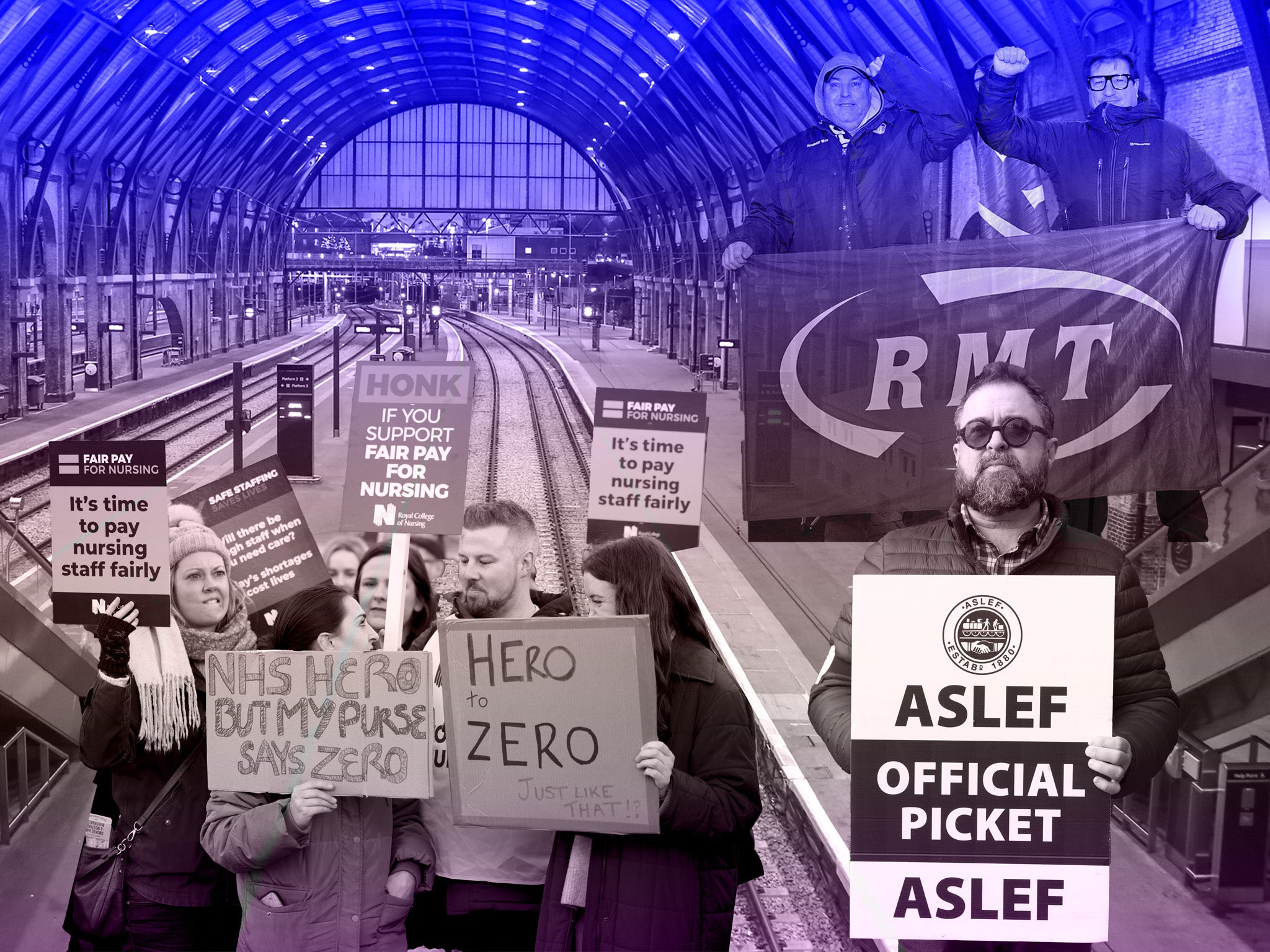Strikes shouldn’t be allowed to grind the country to a halt
As part of our series looking at strikes, Salma Shah warns that industrial action is harming the public sector in its drive to stay competitive


Like the ghost of Christmases both past and yet to come, the spectre of strike action continues to hang over us – sapping our already limited festive cheer. Our well-crafted new year plans are left in tatters as soon as we catch a glimpse of hero/villain (delete as appropriate) Mick Lynch’s determined pout on television.
Individual inconvenience aside, there is a bigger problem concerning the long-term health of our economy and the continued survival of services such as the railways and the post. The more these industries strike, the more they will be left behind.
Yes, there is sympathy for the workers holding out for a better deal, but if you’re a commuter your sympathy may soon run out. A season ticket costs thousands, but getting your money’s worth is unlikely. Of the complaints I hear the most, the patchiness of the service itself is top – and when you do get on a train, you probably can’t get a seat. So what exactly is the customer getting out of this?
Just look at the Office of Rail and Road’s quarterly performance stats: there are plenty of red arrows pointing down. Some 4.1 per cent of trains were cancelled between July and September, and only 67 per cent of trains were on time at their station stops. The natural effect of having an unreliable service is simple: quiet quitting. The number of passengers is still down by 20 per cent from pre-pandemic figures, and strike action will mean that more people find alternatives, like communicating via video call.
Unless of course you can’t work remotely – perhaps you’re a nurse? – in which case you’re facing an increase in fares (5.9 per cent, to be exact) to meet the shortfall in ticket sales, which those who can least afford it will have to pay for. Not to mention the fact that you’re paying twice! Let’s not forget, Network Rail is subsidised by the government to the tune of £13bn. That doesn’t strike me as fair.
It’s the same for striking postal workers. Royal Mail is no longer a monopoly, and is facing fierce competition from the private sector. This is driving its need to streamline in order to hold off the day when it will become extinct. Some 10 per cent of Royal Mail is owned by its employees, so it’s not just a faceless set of managers making decisions for profit. They are acting in the interests of all their shareholders, including employees.
But this strike has a behavioural impact, too. I, for example, did not send out my usual Christmas cards this year, and it’s likely that next year I’ll go digital because it’s so much easier. That is a traditional custom lost.
This isn’t about the right to strike – that is a well-supported concept, even by Conservatives like me. Many of us believe that the union movement is a valuable and often helpful force in the labour market. It’s about how these services will adapt in the face of change.
Striking workers must consider the longer-term plan. Industrial strife leaves investors worried, and the last thing we need is another reason for people to look for somewhere other than Britain to put their capital.
We need good services if we have any hope of creating growth in this country. We need to put transport and communication back at the heart of our society. Striking workers may need to consider the wider picture in order to bring us back to calm – it’s in all our interests to get Britain growing again.
Join our commenting forum
Join thought-provoking conversations, follow other Independent readers and see their replies
Comments
Bookmark popover
Removed from bookmarks